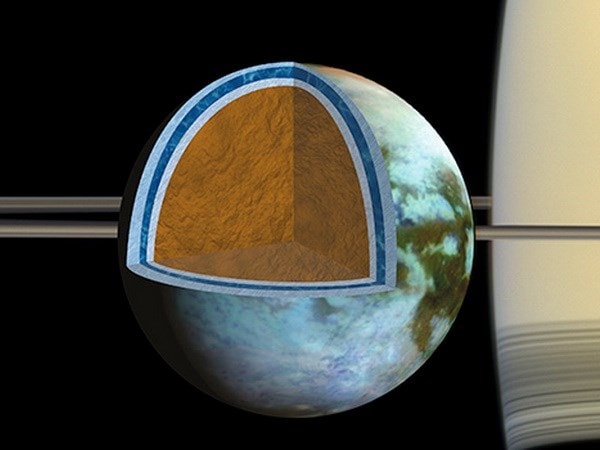New discovery shakes hypothesis of life on Titan
The ocean on Titan, Saturn's largest moon, may have a salt concentration similar to Earth's Dead Sea.
 |
| Photo for illustration purposes only. (Source: NASA) |
This is the result of a study by the US National Aeronautics and Space Administration (NASA) announced on July 2.
NASA's latest study, published in the journal Icarus, was based on gravity and topography data collected by the Cassini spacecraft during its flybys of Titan over the past 10 years.
Analyzing Cassini's data, NASA scientists reconstructed a complete model of Titan's structure, including its surface ice layers and underlying ocean.
According to this model, scientists believe that Titan's ocean must have a relatively high density to produce the gravity readings that have been collected.
Thus, the possibility is given that the water in this ocean contains a very large amount of salt with the main components being sulfur, sodium and potassium.
NASA estimates that the salt concentration in Titan's seawater could be similar to that of the Dead Sea on Earth.
Research team leader Giuseppe Mitri of the University of Nantes, France, said the research results change the hypothesis that this ocean can be a place to nurture life at the present time.
In addition, Cassini's parameters also show that the ice surface on Titan has a relatively uniform thickness. The reason for this is that the moon's outer shell is very hard when the ocean crystallizes and freezes slowly.
On the other hand, the moon's surface tends to flatten out over time like warm candle wax. This freezing process has important implications for Titan's ocean habitability, as it limits the ability of matter to exchange between the surface and the ocean.
The discovery of an ocean on Saturn's moon Titan was seen as a major step forward in the search for a planet that could support life like Earth. However, the new findings could extinguish hopes of life existing on Saturn's largest natural satellite./.
According to VNA






